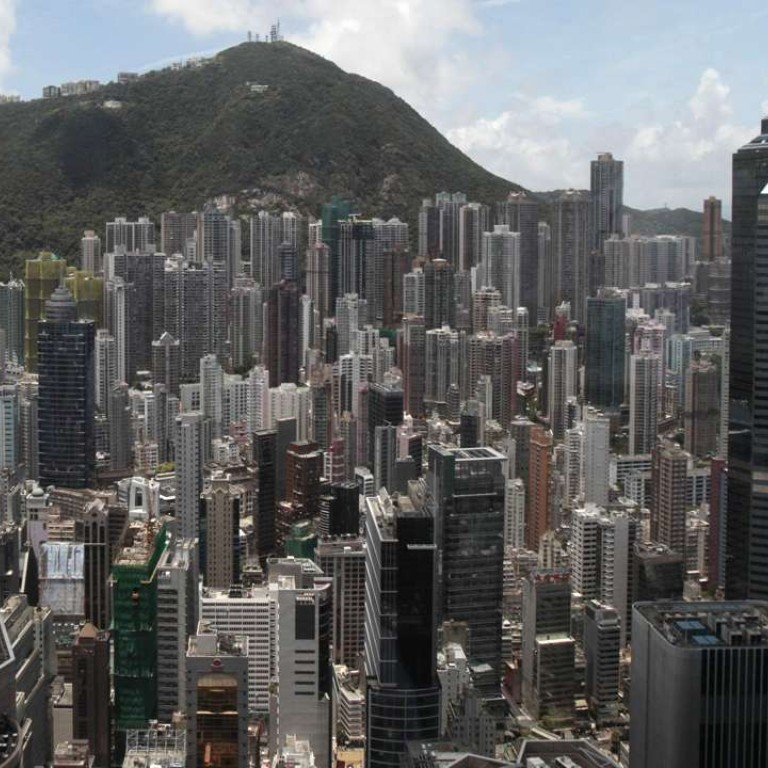
HK$58 billion and rising: mainland buyers splash out on assets and land in Hong Kong as yuan devaluation fears linger
And the acquisitions are likely to continue, say experts, as city remains favourite investment destination amid growing uncertainties in Europe
Mainland companies and developers have splashed out more than HK$58 billion on major office buildings and residential land in Hong Kong, partly driven by a fear of further depreciation in the yuan, according to the latest estimates.
And analysts believe the acquisition binge will continue for some time yet, as the city remains their favourite investment destination, amid growing uncertainties in Europe, particularly after Britain decided to exit European Union in June.
“Buying assets in a US dollar-pegged currency domain makes sense from a wealth-protection point of view,” said Alan Jin, a property analyst at Mizuho Securities Asia.
On August 11, it was a year since the People’s Bank of China abruptly depreciated the currency by 1.9 per cent last year, and since then the Chinese currency has lost 7 per cent against the US dollar.
Of the headline deals, mainland developers have spent HK$22.53 billion snapping up six large residential sites in Sham Shui Po, Yau Tong, Ho Man Tin and Tai Po, while other organisations have forked out HK$36 billion buying major office buildings in Wan Chai and Hung Hom.
“The arrival of mainland developers will have a long-term impact on the Hong Kong housing market, adding additional competition to local developers through increased housing supply and probably lower prices,” said Jin.
The yuan’s devaluation is two-fold: it makes the ultra-rich keener to buy overseas assets to protect their wealth, while it is detrimental to the less-rich, due to their loss of buying power of yuan
The real estate arm of state-owned Minmetals Corp, China’s largest metals trader, said it would invest a total of HK$6 billion on the site, after it won the plot by government tender.
Four months later, China Everbright Group paid HK$10 billion for Dah Sing Financial Centre at 108 Gloucester Road, Wan Chai.
“The yuan’s devaluation is two-fold: it makes the ultra-rich keener to buy overseas assets to protect their wealth, while it is detrimental to the less-rich, due to their loss of buying power of yuan.
“Capital outflow may continue, but at a lesser scale compared with the same time last year as the Chinese government strengthens its control on the loopholes created by some to get their flow out,” said Jin.

“But sales volume in the second quarter was 30 per cent above the Q2 in 2015 at US$5 billion compared to US$3.8 billion,” he said.
“Residential activity has halved from US$3 billion to US$1.5 billion in H1 2016, according to JLL.
“Although investment activity is down, the most popular locations remains the same with Sydney and San Francisco seeing further purchases in first half this year,” he said.
“But the commercial side is a different story with purchasing activity up over 30 per cent in the first
half 2016 at US$7.2 billion compared to US$5.6 billion in the first half of 2015, “ he said.
“As with residential activity, commercial activity remains concentrated in the familiar locations of London and New York.”
Thomas Lam, Knight Frank’s head of valuation and consultancy, added that his clients say they will continue pursuing real estate investment opportunities globally .
“But the city’s well-established legal framework and higher transparency will greatly reduce their investment risk,” he said.
Joseph Tsang, managing director at JLL, shared Lam’s view, saying mainland firms well understand Hong Kong investment environment as the city is still part of China.
“In foreign countries, mainland firms are hard to respond in case an abrupt change in government investment policy,” he said.

